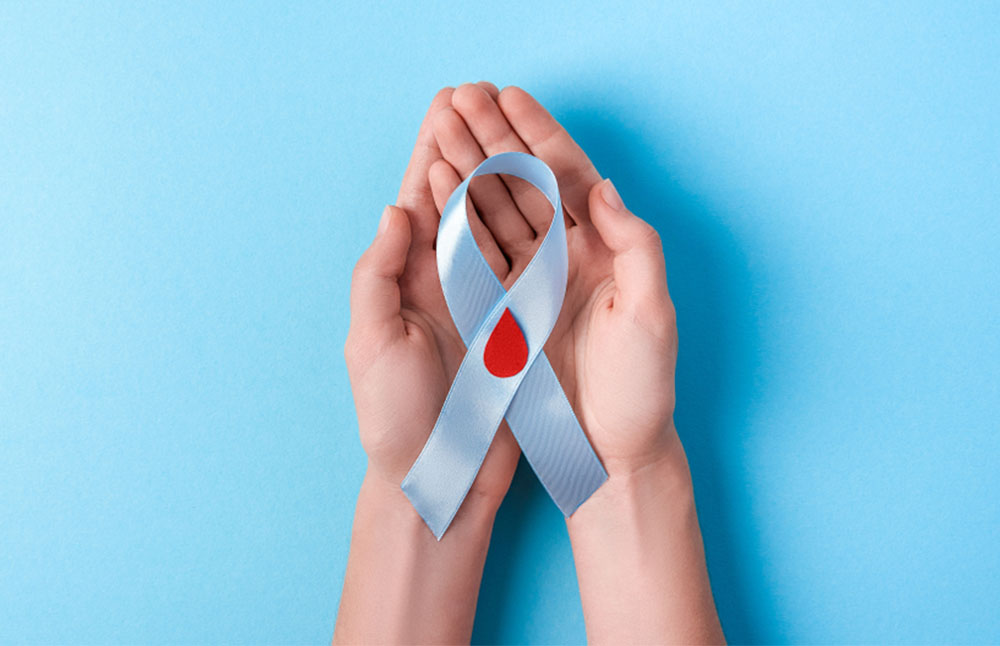
A Thorough Guide on Getting Help With a Diabetes Doctor
Dealing with diabetes requires taking certain deliberate steps to live a healthy life. The condition—which triggers high spikes in blood sugar—can quickly worsen and cause further complications when left untreated.
In certain cases, people with diabetes simply opt for basic diabetes management tips. These tips are usually implemented when diabetes is in its early stage. Namely, people try to control what they eat, sleep better, reduce stress, and exercise.
These methods usually work and keep diabetes symptoms and possible complications at bay. However, if the condition worsens or when these methods don’t significantly improve the condition, visiting a diabetes specialist becomes the more viable option.
This guide aims to help people with diabetes know when to visit a doctor or health expert for their diabetes condition.
When to See a Specialist
When it comes to diabetes, there are proven DIY methods that can help you handle the condition without the need for a doctor’s involvement. Patients can refer to many expert resources to get all they need from the internet.
However, there are times when it’s important to see a diabetes doctor or expert specialist. The diabetes condition doesn’t have to get worse or out of hand before you seek the help of a specialist.
One of the major reasons is that diabetes management tips employed at home no longer work properly in controlling blood sugar. If new symptoms appear during self-management, you should meet a doctor to help you with better management.
Still, this isn’t the only reason you should seek a medical doctor. You should see a specialist if you experience any of the following:
- A risk factor that could make diabetes quickly metamorphose into a bigger life-threatening complication
- Symptoms that disappear and reappear
- A need for complex treatments and management
- Difficulty in getting the desired treatment that ensures proper insulin levels
The list also goes on to include those that:
- have better treatments suggested for their condition, and
- seek to participate in supposed new experiments that could improve their condition.
Doctors for Diabetes

While it may look like there’s an obvious choice when seeking a specialist for expert management and care for diabetes, the reality is that it’s not so obvious. Certain symptoms of the condition may require you to see a specialist that may not even have very good knowledge about diabetes.
At the early stage of your condition, meeting a specified diabetes specialist or endocrinologist may not be necessary. A primary care physician will be more likely to handle the condition effectively and recommend better treatment options to patients.
In certain instances, a general health specialist and an endocrinologist may not be a perfect choice; for example, when the diabetes symptoms or complications aren’t within the scope of their expertise. Therefore, other healthcare players will naturally become the preferred option. In essence, the aim is to ensure that people with the condition get the highest quality care when they visit a doctor.
General Health Physicians
Your general health physician is the first doctor to discover your diabetes. If you have symptoms of diabetes or you have a family member who had diabetes, and you want to know your status, it’ll be wise to share your concerns with your general health physician. The physician will teach you how to care for your diabetes and support you while managing diabetes.
You’ll need to find out about the type of diabetes you have by testing the sugar level in your blood. The physician will also help determine if it’s pre-diabetes that you have, which increases your risk of having heart disease, stroke, and type 2 diabetes. To assess your diabetes diagnosis, the physician will recommend tests like:
- glucose tolerance test,
- A1C test,
- fasting blood sugar, and
- a random blood sugar test.
Suppose your results indicate that you have diabetes or have pre-diabetes. In that case, your physician will give you a list of lifestyle changes that you need to improve your health or recommend that you see an endocrinologist.
Endocrinologists
Endocrinologists specialize in hormones and gland treatments. These health specialists usually focus on the appropriate functioning of the body’s metabolism and all biochemical process and reactions. Due to their deep understanding and expertise on human hormones and metabolism, endocrinologists know how the human body utilizes food.
Suffice to say, endocrinologists are the most advanced diabetes care specialists. More particularly, they have experience with everything that has to deal with the condition symptoms and complications.
Diabetes develops when there’s a disruption in the appropriate amount of insulin the pancreas produces — the pancreas is a gland, while insulin is a hormone. Endocrinologists study and conduct tests on insulin levels and can help people with diabetes determine if their pancreas functions adequately and produces as much insulin as possible.
The endocrinologist gives all diabetics patients the most advanced diabetes management and treatment solutions that support healthy blood sugars production. They’re the preferred choice when the diabetic’s condition may have worsened.
An endocrinologist that focuses on kids is called a pediatric endocrinologist.
Visiting a Diabetes Doctor
Discussing your diabetes even with your familiar family doctor isn’t an easy task. There are various ways to communicate effectively with your doctor to get the most out of the visit. The average visit to the doctor usually takes about 20 minutes, and it’s essential to know all you need to say to maximize this period.
Write down every topic or question you’d like to discuss with the doctor, so you don’t forget anything. Understand that the doctor will sometimes interrupt you, so it’ll be best to ask the most important questions first.
Tell your doctor about your symptoms or any new symptoms to help him manage your diabetes effectively. If your doctor adds a new drug to your prescription or changes your entire prescription, you should ask the reason for such.
That said, there are several steps that you can implement before booking an appointment with your primary care doctor or diabetes care team if you have one. These proactive steps/tips will ensure you gain the best benefits from your visit.
Have a Journal
Nothing beats having a journal where you keep records of your diabetes journey before every appointment. This is one of the most effective steps you can take to always ask the right question when having an appointment with your doctor. A journal helps you remember every unusual feeling and noticeable change in your body system.
With a journal, you can describe your situation more graphically to your doctor — important for getting the best solution out of the different available management and treatment options for diabetes.
Also, clear, crisp information makes it incredibly easy for your doctor to refer you to other diabetes-related health care specialists if the need arises.
The importance of a journal in tracking your condition can’t be overemphasized. People relate to diabetes differently, and as such, how you may react to the condition can significantly differ from how another person reacts. Having a good idea of your condition will enable you to obtain the best diabetes doctor supplements and drugs that aid healthy living.
Fasting
Fasting is crucial when it comes to getting an accurate diabetes test. In most visits to your doctor, you may need to perform a test, and one of the most effective tests and diagnoses for diabetes is a fast test.
This test requires that the patient doesn’t consume any food or water 8 hours to time. It’s best performed in the morning as patients will usually not feel hungry when they test around 9 am, given that they’ve spent most of the 8 hours asleep.
If you’re meeting your doctor for the first time and he suggests that there may be a need for a test, then it’s extremely likely that it’s a fast test. You should confirm the type of test, though, for the best preparation.
However, when there’s no specification, going without food or any liquid within 8 hours is the best option. Additionally, a patient undergoing a fast can drink water for a few hours before the test as it won’t alter the result.
Note-Taking
While a journal can help you keep track of your condition before meeting your doctor, taking notes helps you get all the key points that your health specialist may communicate to you to better manage your condition.
Your doctor will most likely do a lot of talking, with most of the information being important. You don’t want to miss any information that can be very helpful, as even the little things matter in managing diabetes. You should also seek to implement whatever important information you get from your meeting.
Other Important Players in Diabetes Management

A general physician and an endocrinologist are undoubtedly your best bet for getting the right information about your condition. Still, you don’t necessarily have to limit your search for better relief and management of your condition to them solely.
As already stated, other health experts play a secondary role in making the lives of people with diabetes close to normal. The conditions that these specialists handle may not be very related to diabetes. However, they’re usually symptoms or signs of diabetes.
Hence, visiting a specialist for these symptoms can help you know if they’re of a natural cause or consequences of diabetes.
Dieticians
Dieticians are one of the most important specialists for diabetes. They may even have more value than an endocrinologist and general care doctor when the condition is at its early stages. The type of food that a person eats can cause a blood sugar spike and increase the effects of diabetes, such that it becomes life-threatening.
Most foods globally are high in glycemic index (GI) and glycemic load (GL) and, as such, won’t work well with a diabetic when consumed in large quantities. As such, it’s not out of place to have a dietitian plan an excellent diet that works well with people with diabetes. These foods usually have nutrient-enriching superior ingredients and significantly low carbs.
Certified Expert Diabetes Educators
An expert educator in diabetics can help patients make the right choice for managing their condition. These experts usually offer general recommendations, but the good thing is that they’re well updated on the newest diabetes research. As such, they can help people with the condition cope better and live close to a very normal life.
Nephrologists
A nephrologist is a doctor that specializes in kidney management and treatments. The worst complications of diabetes include kidney breakdown; a nephrologist will usually come in handy to preclude this situation or salvage the situation if the damage has already been done.
They can work hand in hand with an endocrinologist to ensure that patients achieve stability in kidney functioning and blood sugar level.
Conclusion
Diabetes health specialists play a critical role in helping people manage their conditions and live healthier lives. They help patients determine the severity of their condition, the best treatment to help them lead a healthier life, and other factors that promote well-sustained health for the long term.
This guide considered the two main health specialists that diabetes patients should visit and other secondary health professionals that effectively contribute to ensuring that patients get the best result after seeking expert help.
One of the prominent secondary experts considered in this article is dieticians because they ensure that diabetics eat only the right meal. High sugary meals have serious consequences on patients’ health, and as such, it’s only normal that people go for expert-recommended diabetics-friendly food.
However, the good thing is that dieticians aren’t the only source for getting expert help in terms of food choices. There are great meal planning apps for diabetics — like our Klinio app—that do a great job and receive constant updates to offer the best food-related advice to diabetics. Suffice to say, the Klinio app provides users with the best foods having just the right amount of carbohydrates.







